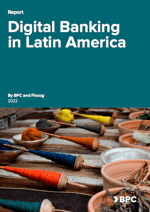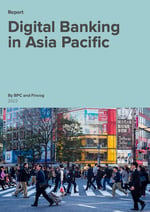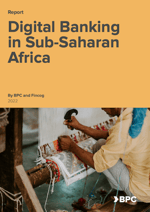As we navigate the new normal, the banking services landscape across the European Union (EU) has observed a paradigm shift. The current economic scenario presents several challenges that require effective solutions and innovation from entrepreneurs and businesses. Three key trends - adapting to the cost-of-living crisis, embracing the role in addressing climate change, and serving the influx of migrants, along with the phenomenon of embedded finance and Banking-as-a-Service (BaaS) - are shaping the future of banking in Europe.
Cost-of-living crisis and consumer behaviour
Today, Europe grapples with an escalating cost-of-living crisis, with inflation and geopolitical tensions adding fuel to the fire. Essential goods prices are soaring, causing disruption in everyday lives and altering consumer behaviour. Energy costs are skyrocketing, geopolitical tensions are affecting the supply chain, and potential shortages in essential sectors like semiconductors are looming.
This alarming trend has led consumers to be more cautious about their financial situation, thereby impacting their purchasing habits. According to a McKinsey survey, rising prices top the list of concerns for 58% of European consumers, above global issues like the Ukraine conflict, climate events, unemployment, and political uncertainty.
However, this crisis also opens up opportunities for banks and financial service providers. They can fill a crucial gap by providing financial solutions that meet the current needs of consumers and businesses. Banks need to react to the cost-of-living crisis in a manner similar to their response to the Covid-19 pandemic. CommBank, an Australian bank, has set an excellent example by launching an app feature that personalises banking services, predicting when a customer will need to refuel their car and suggesting the most affordable petrol stations nearby.
Banking's increasing role in addressing climate change
Climate change, a significant global concern, is another crucial factor influencing the banking sector. Extreme weather conditions pose a significant risk to the credit portfolios of banks. However, there's an opportunity amidst this challenge. Banks can play a pivotal role in supporting the economy's energy transition, aligning their portfolios with green companies, and decarbonising assets.
Consumer demand for sustainable banking products is rising. Banks are responding to this trend by offering environmentally friendly solutions. For instance, the Dutch challenger bank Bunq provides an account where every $100 spent leads to the planting of a tree in the account holder's name. Many banks also offer attractive mortgage interest rates for energy-efficient houses. Thus, banks are contributing to the creation of a more sustainable and environmentally responsible society.
Financial services for migrants
The ongoing influx of migrants in Europe is another significant challenge. This increase demands easy and accessible financial services for migrants. The challenge is compounded by the fact that many migrants lack valid IDs necessary to open a bank account.
Digital banks and fintechs can rise to the occasion by providing wallet-based solutions that meet migrants' needs. These services can enable digital payments and remittances and allow migrants to access financial services and receive government support for easier integration into their host countries.
The emergence of embedded finance and baas
The banking industry is transitioning from a product perspective to a customer perspective, with services being delivered by a diverse range of providers in the digital ecosystem. Embedded finance and BaaS are pivotal to this transition. Embedded finance is about integrating financial services into non-financial software platforms, while BaaS enables businesses to offer digital banking services.
These concepts have gained traction due to advancements in technology and evolving financial regulations. Currently, payments dominate the BaaS and embedded finance solution providers market, but the sector is expanding into insurance, tax, and payroll services.
Conclusion
The European banking landscape is transforming in response to societal and economic changes. By embracing these trends, banks and financial service providers can create innovative solutions that not only address current challenges but also seize new opportunities. As the sector evolves, the winners will be those institutions that can adapt and align their services with these emerging trends, benefiting both themselves and their customers.






